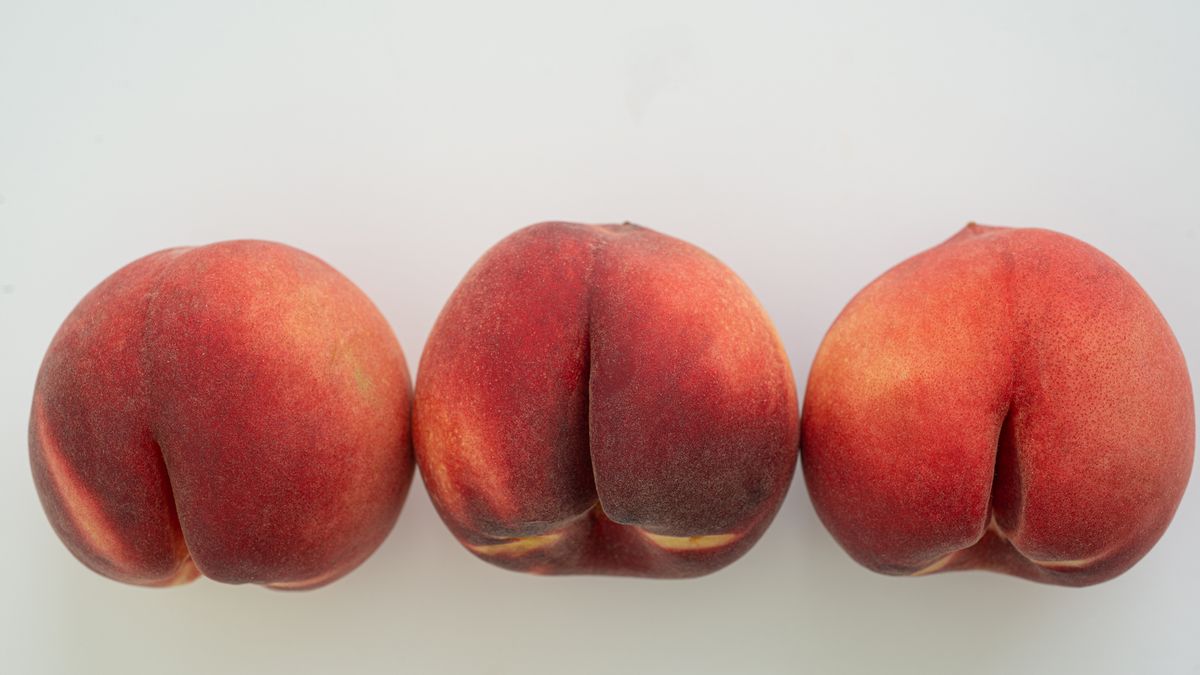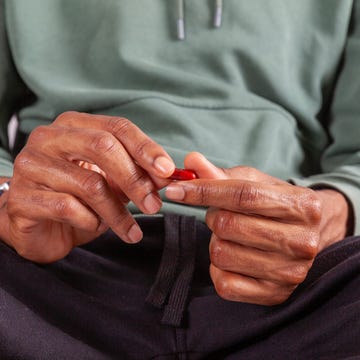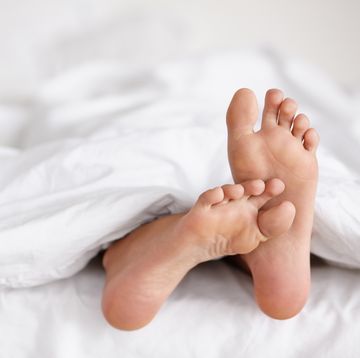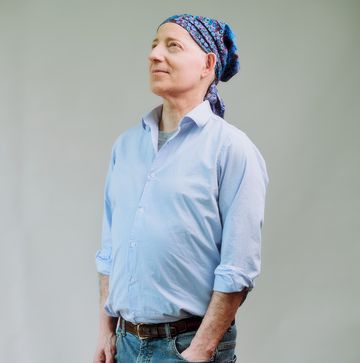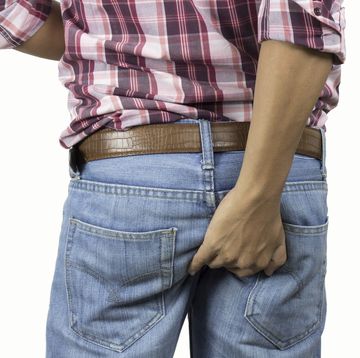- Ozempic butt is the latest side effect to be linked to the popular type 2 diabetes drug.
- Some users of the medication say it caused them to develop a saggier butt.
- Experts say the weight loss associated with Ozempic use is to blame.
The type 2 diabetes drug Ozempic has gotten a lot of buzz this year after social media users revealed that it’s often used off-label for weight loss. With that, a slew of anecdotes about what it’s like to use Ozempic have surfaced, including unusual side effects like so-called Ozempic face. Now, there’s a new one to have on your radar: Ozempic butt.
Several people on TikTok say that using Ozempic has left them with saggy butts. One is TikTok user @jocelyngarcia3514 who says in a now-viral video that she has “loose skin and cellulite” in her butt after losing weight on Ozempic. “Nothing to brag about. It’s just loose skin,” she says in the video.
Ozempic was originally designed to help people with type 2 diabetes regulate their blood sugar, but it’s been sought more widely, sometimes off-label, after people discovered that weight loss was a side effect of the medication. (While Wegovy is FDA approved to treat weight loss in people who have obesity, Ozempic technically isn’t FDA approved for this purpose.)
It’s worth pointing out, though, that Ozempic is often used by doctors for weight loss, just like Wegovy. “They’re the exact same drug, the exact same thing—just different brand names,” says Fatima Cody Stanford, M.D., M.P.H., an obesity medicine physician and clinical researcher at Massachusetts General Hospital.
But what is Ozempic butt, exactly, and what can you do if you experience saggy skin after weight loss? Doctors break it down.
What is Ozempic butt?
You’re probably aware of this, but it never hurts to say it: “Ozempic butt” isn’t a medical term. With that, there is no set definition.
Still, the consensus seems to be that Ozempic butt means having loose skin on your backside after experiencing weight loss due to Ozempic. People with Ozempic butt also report having smaller bottoms than before they started taking the medication.
What causes Ozempic butt?
It’s important to state this upfront: Ozempic butt isn’t necessarily a direct side effect of taking the medication. However, taking Ozempic may indirectly lead to you having a saggier-than-normal butt.
“It’s the weight loss itself,” says Jamie Alan, Ph.D., an associate professor of pharmacology and toxicology at Michigan State University. Dr. Stanford agrees. “When you’re losing weight, you’re losing fat and also muscle,” she says. “You carry some fat stores but also some muscle stores in your butt region. This type of medication doesn’t really distinguish between losing fat or muscle. People may notice that everything is smaller.”
Ozempic, which is an injectable medication, works by mimicking a protein in your body called glucagon-like peptide 1 (GLP-1), Alan explains. When you take the medication, it activates GLP-1 receptors and increases insulin to help with blood sugar management. At the same time, it tends to tamp down on feelings of hunger and makes users feel satisfied for longer periods of time. That typically causes people to eat less than they normally would, leading to weight loss.
But when weight loss is fast, it can make it tough for your skin to keep up, says Gary Goldenberg, M.D., a board-certified dermatologist practicing in New York City. “Weight loss, especially rapid, removes subcutaneous fat support from the tissue,” he says. “Rapid weight loss does not allow collagen and elastic fibers to adjust to this lack of support and results in severely sagging skin.”
Ife J. Rodney, M.D., founding director of Eternal Dermatology Aesthetics and professor of dermatology at Howard University and George Washington University, compares skin to a balloon. “Our skin stretches and grows to adapt to whatever size it needs to be. It’s like a balloon that blows up and stays blown up,” she says. “When you lose weight, it’s still stretched out.”
Who is most likely to experience Ozempic butt?
It’s hard to say. However, how quickly you lose weight can play a role. Meaning, people who lose weight fast may be more likely to develop a saggier butt.
The amount of weight you lose matters, too. “The dermis—the inner layer of the two main layers of skin—has some potential to recover from mild weight loss,” Dr. Goldenberg says. “But severe weight loss doesn’t allow the skin to recover.”
Your age can play a role as well. “Older patients have less capacity for producing new collagen and elastic fibers, so they are at a higher risk,” Dr. Goldenberg says.
How to treat sagging skin after weight loss
There are a few different things you can try. If you take Ozempic or a similar medication, or if you’re losing weight through some other means, Dr. Stanford recommends doing lifestyle modifications at the same time. Those include focusing on a healthy diet, as well as strength and muscle-building activities like squats and lunges. “This can help maintain lean muscle mass,” Dr. Stanford says.
The location of your saggy skin, along with how much of it you have matters as well. “Some skin-tightening procedures, such as Ulthera, CO2 lasers, platelet-rich plasma and fillers injections, can help,” Dr. Goldenberg says.
But if you lost a lot of weight—like 100 pounds or more—plastic surgery may be your best option to remove saggy skin, Dr. Rodney says.
Other known Ozempic side effects
The Ozempic website lists the following as the most common side effects of using the medication:
- Nausea
- Diarrhea
- Stomach pain
- Vomiting
If you happen to develop a flatter-than-normal butt after using Ozempic or undergoing any weight loss, Dr. Stanford says you shouldn’t stress it—from a health perspective, at least. “This isn’t something that is of major concern,” she says. “If you carry weight in your butt region, it is what it is. The fat that we’re really concerned about is the fat that you carry in your midsection—that is really harmful to health.”
